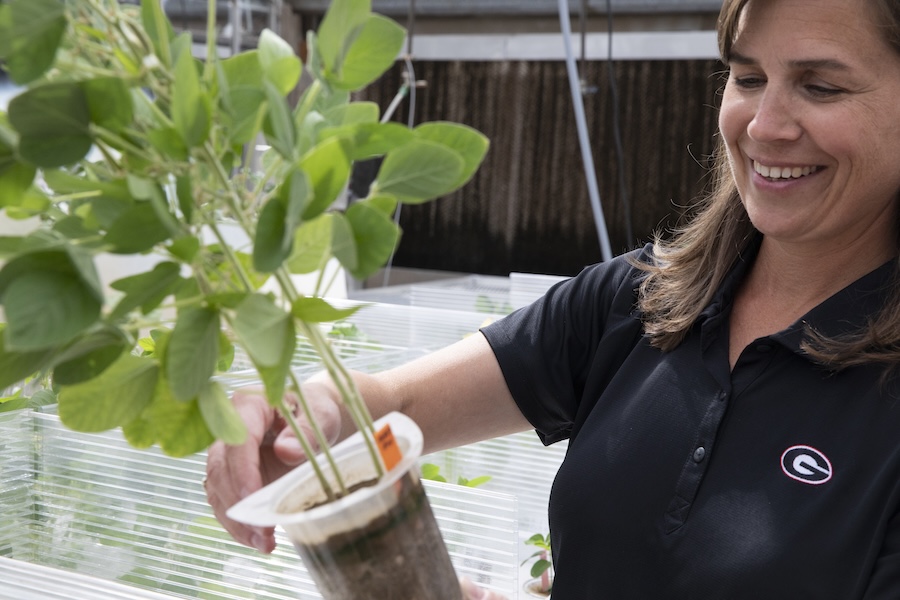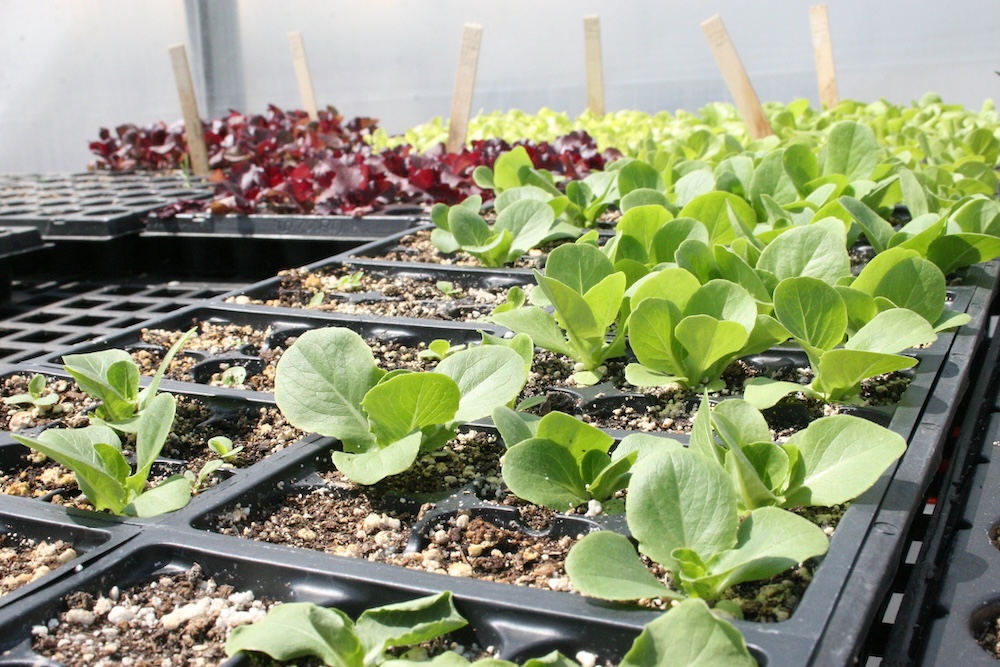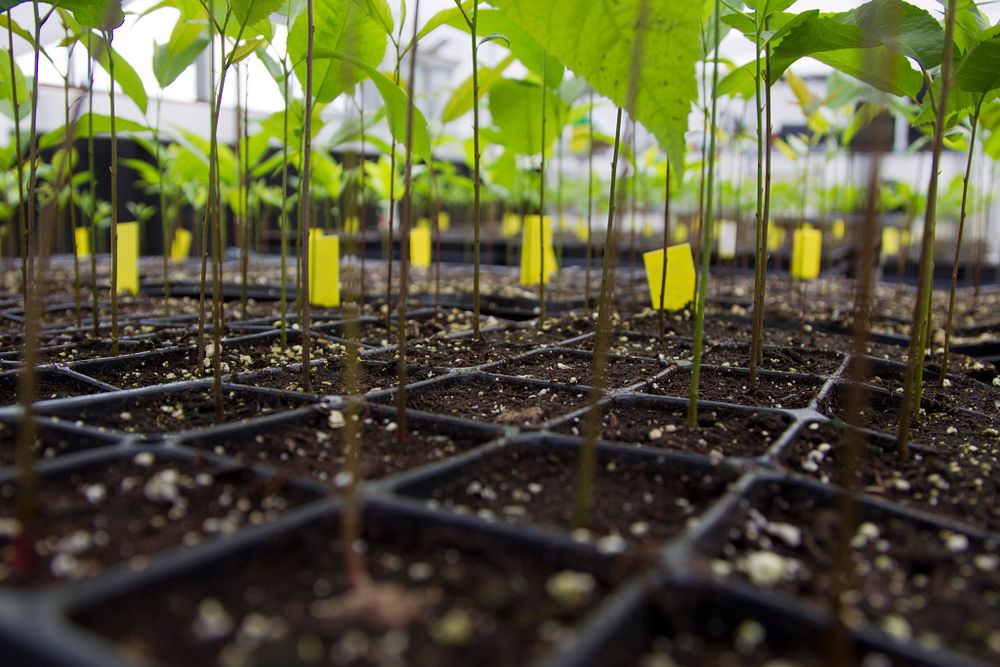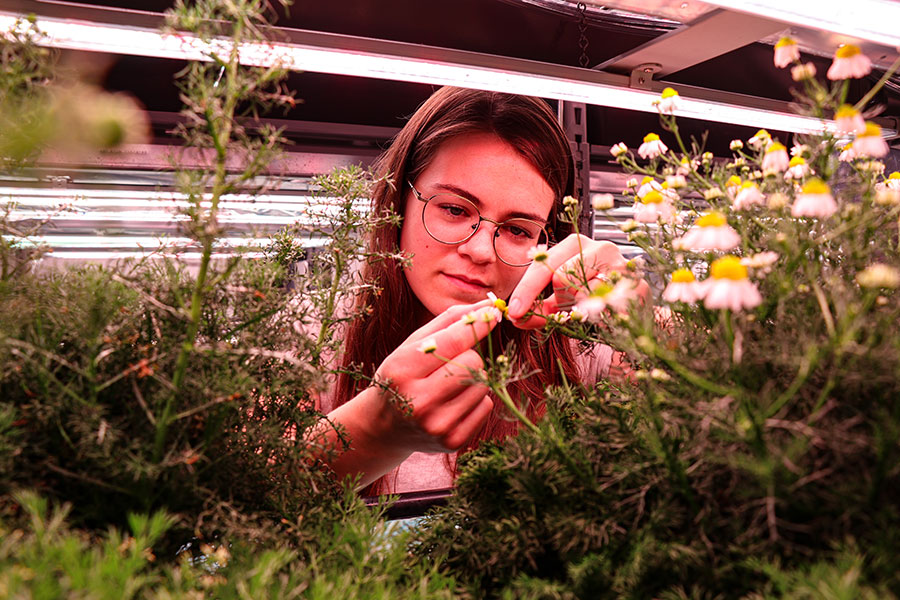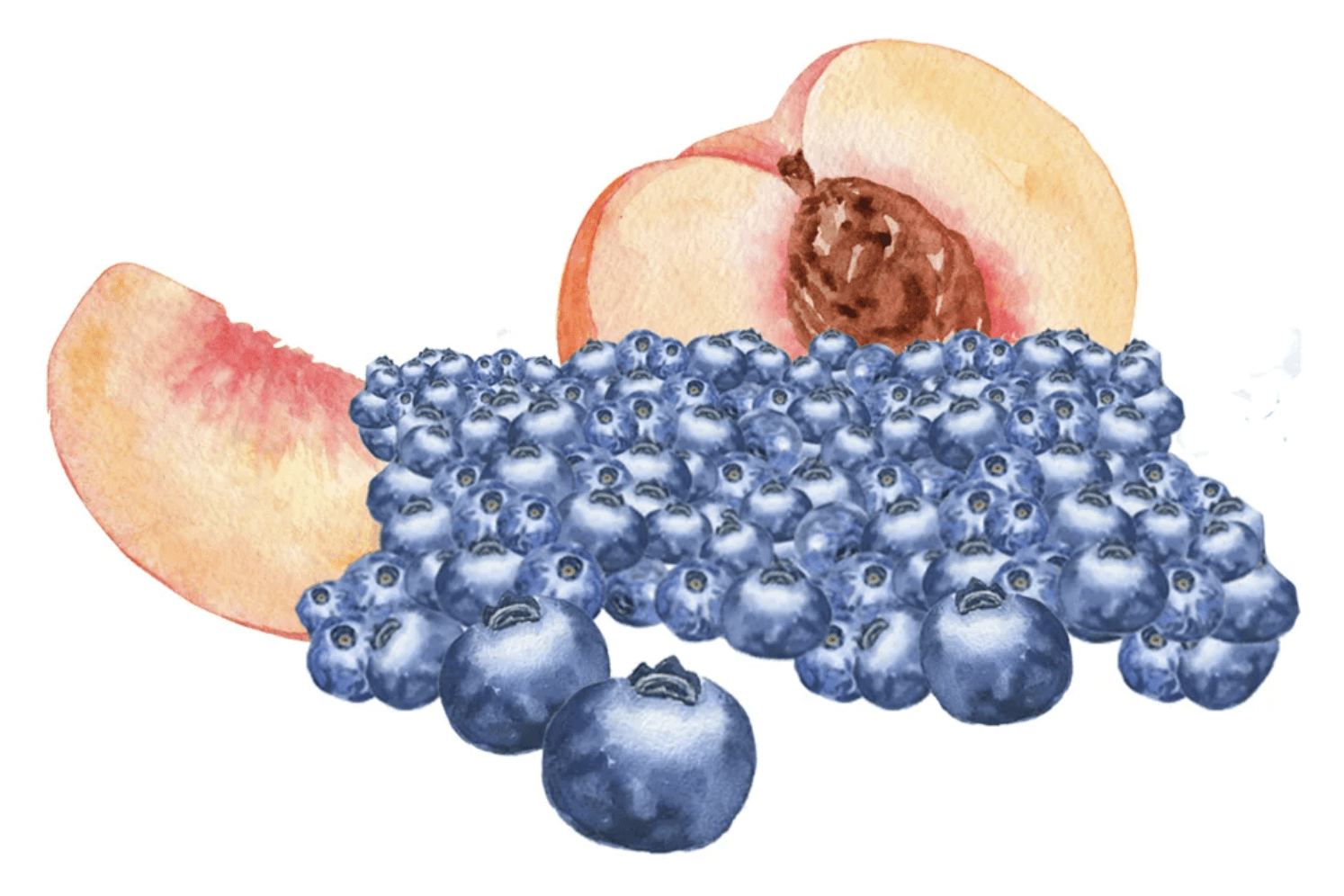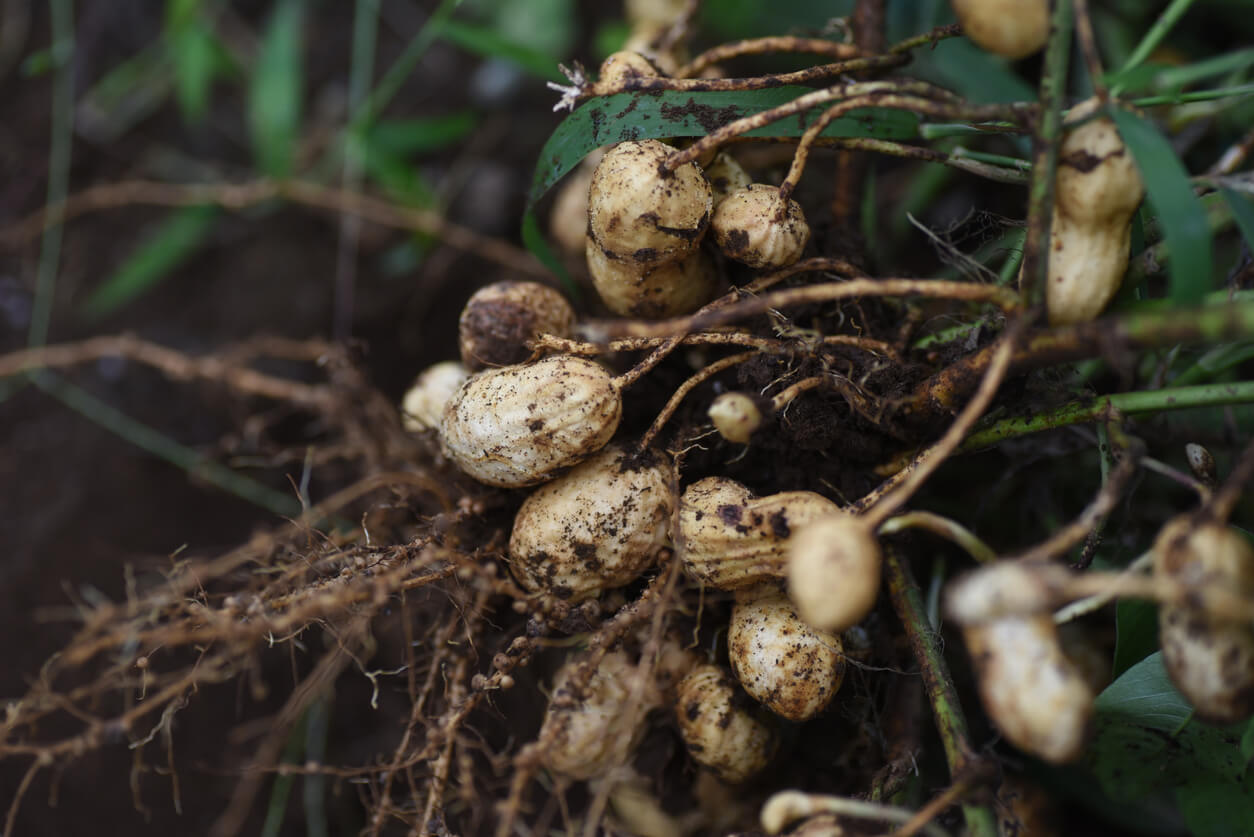
More than 4,000 miles separate the capital cities of Senegal in West Africa and Uganda in East Africa. If you drove eight hours a day, it would take you more than two weeks to make the journey.
Yet both countries grow peanuts and, like other countries across Africa, farmers there rely on peanuts as a food and cash crop and a valuable part of good crop rotation.
Five years ago, the researchers who help those farmers — plant breeders from Uganda, Senegal and seven other African countries — formed an organization called the Groundnut Improvement Network for Africa, or GINA, to work together. With technical guidance and organizational support from the University of Georgia and other U.S. institutions, that group is developing peanut varieties that help African farmers deal with plant diseases and climate change.
Breeding peanuts to withstand harsh conditions
Peanuts are called groundnuts in much of the world and are an important part of local cuisine across the African continent. Mothers add peanut paste to toddlers’ cereal to give them more protein. Peanut soup is a savory favorite for adults. And children and adults snack on peanuts because they are easy to carry and don’t spoil.
In many areas, the farmers who grow peanuts don’t have access to irrigation or the chemicals to control diseases. They need peanut varieties that can withstand plant diseases and mature before drought occurs.
Those traits come from the genes of the plant, so GINA partners banded together to collect many of the varieties grown across Africa, evaluate those varieties using the latest genomic technology, and share the collection across the continent, giving plant breeders a larger collection of genes to work with.
“The biggest limitation in plant breeding is genetic diversity. You can only add traits that are in the genome of the varieties available to you,” said Dave Hoisington, the director of the Feed the Future Innovation Lab for Peanut. The Peanut Innovation Lab is funded by the U.S. Agency for International Development and headquartered at UGA’s College of Agricultural and Environmental Sciences.
“So, the first thing we needed to do was to learn how much diversity is out there by compiling peanut lines that are grown across Africa.”
Sharing peanut lines across the continent
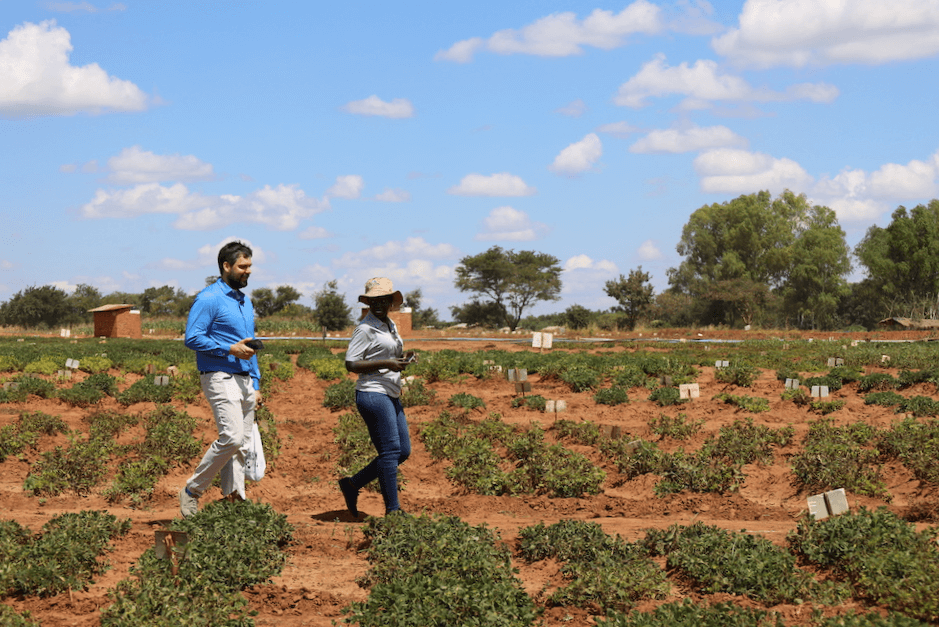
Once, the African groundnut breeders compiled their most promising lines (over 1000 in total), Peggy Ozias-Akins’ lab in Tifton genotyped them, with the support of HudsonAlpha Institute for Biotechnology in Huntsville, Alabama, and a senior researcher there, Josh Clevenger, who worked in Ozias-Akins lab while completing his doctorate and as a postdoctoral researcher.
“The Groundnut Improvement Network for Africa is one of the most profound things I think I’ll witness in my lifetime,” said Clevenger. “Working together, scientists across an entire continent are making a difference for the people of their own countries.”
The GINA countries — Senegal, Ghana, Togo, Mali and Niger in West Africa and Uganda, Malawi, Mozambique and Zambia in East and Southern Africa — met in 2021 to review the data and choose a collection of varieties that represent the range of diversity in peanut grown in Africa. Described in the journal G3 Genes Genomics Genetics late last year, they named the set of 300 lines the “GINA core collection” and distributed it across the continent for plant breeders to grow and look for traits they want.
That means a plant breeder in Malawi (in Southern Africa) might be growing a variety from Senegal (in much drier West Africa) to cross it with a local variety that needs more drought tolerance. At the same time, plant breeders can look into the future to see how the varieties that their local farmers grow will fare in changing climate or new disease pressure.
Fighting a devastating plant disease
One of the earliest successes of the GINA network is in the fight against groundnut rosette disease (GRD), a virus complex that is spread by aphids. The disease hasn’t reached U.S. fields, but it is spreading across Africa and can devastate peanut crops along the way.
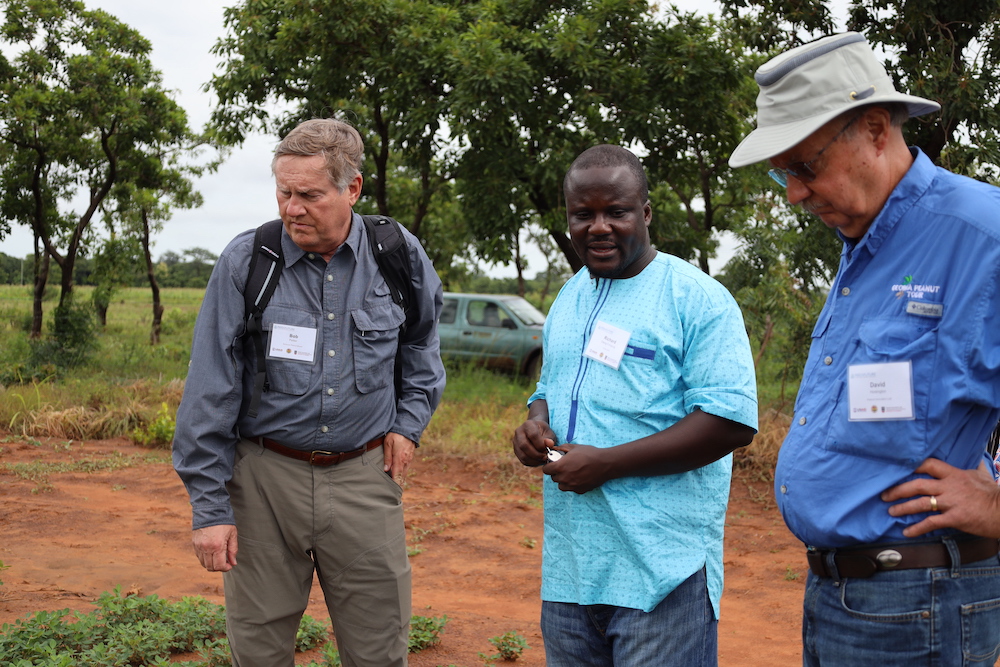
“At the end of every season, we could sit and compare data to see what we had,” said David Okello, the principal groundnut breeder for Uganda. Because that East African country is a hotspot for GRD, the varieties that Okello has produced for the past decade are important resources of resistance for colleagues across Africa.
The international research community is taking note of GINA’s work. Ugandan graduate student Esther Achola recently won the prestigious Joe Sugg award, the top award the American Peanut Research and Education Society gives to graduate students, for her work with GINA materials in the fight against GRD.
The network and the work they do also could be very important to U.S. growers if GRD appears here. Georgia farmers can’t know how susceptible the varieties grown here are to GRD, but considering how the disease wipes out fields in Africa, it’s likely that the disease would bring an economic disaster here.
The more plant breeders know about genetic resistance to the disease, the quicker they can respond, whether in Africa or the U.S.
“GINA is still relatively new and, while the network has achieved great success, I don’t think we know what these scientists will be able to accomplish for farmers in their home countries and around the globe,” said Hoisington. “This type of collaboration, which is built on trust among the partners and the latest genomics technology, will make a difference for decades to come.”
GINA has grown to 13 countries, which collaborate with the Peanut Innovation Lab, Hudson Alpha and the Wild Peanut Lab at UGA, which uses the wild relatives of modern peanuts to add more diverse genes to the plant.
By working together, the group is empowering individual scientists to respond quickly to climate change and other environmental pressures, easing food insecurity and improving farmers' livelihoods. Learn more at youtube.com.

